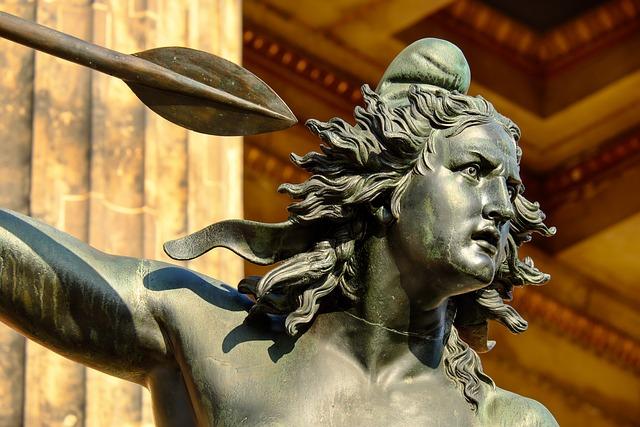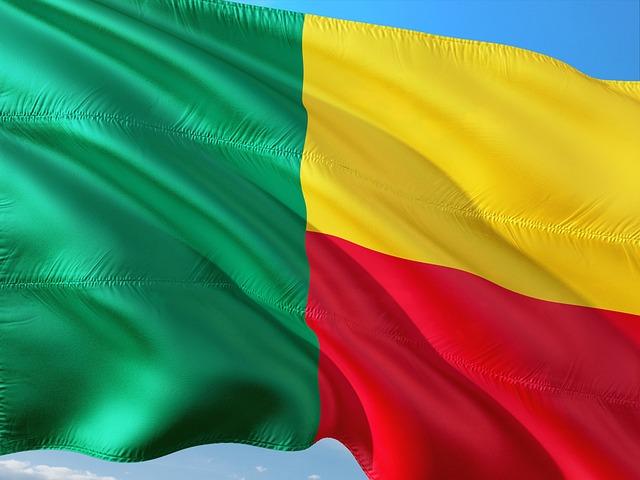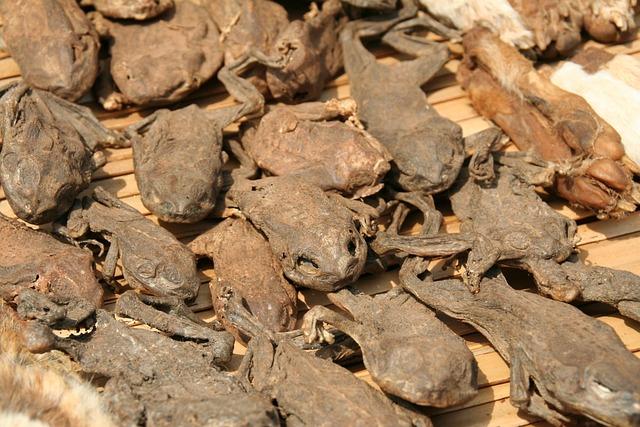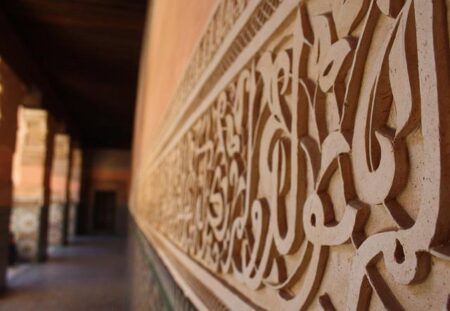In a recent dialog illuminating the cultural and historical importance of the Benin Bronzes, Dutch Ambassador to Nigeria, Harry Deelen, has underscored the potential of these remarkable artifacts to serve as powerful ambassadors for Nigeria. As a testament to Africa’s rich heritage, the Benin Bronzes are not merely artistic treasures; they encapsulate a complex narrative of history, identity, and diplomacy. In an era where cultural representation is increasingly paramount on the global stage,Deelen’s insights highlight the importance of these pieces in fostering international understanding and gratitude for Nigeria’s legacy. this article delves into the ambassador’s views and explores how the Benin Bronzes can bridge cultural divides and promote a renewed recognition of Africa’s contributions to world history.
Benin Bronzes as a Symbol of Cultural Heritage and Diplomacy

The Benin Bronzes stand as a compelling representation of Nigeria’s vibrant cultural heritage, encapsulating not only the artistic prowess of the Edo people but also the intricate history of the Benin Kingdom. These exquisite artifacts, which were looted during the late nineteenth century, have sparked renewed interest in the potential for cultural diplomacy. Recent statements by Dutch envoy Deelen emphasize their role as ambassadors for Nigeria, serving to educate global audiences about africa’s rich history and cultural contributions. The bronzes foster opportunities for dialogue, reconciliation, and partnership, allowing nations to engage in conversations about restitution and cultural ownership.
The diplomatic narrative surrounding the Benin Bronzes extends beyond mere repatriation; it advocates for a deeper understanding and appreciation of African heritage. By showcasing these treasures, countries like the Netherlands can foster strong ties with Nigeria, enhancing mutual respect and collaboration in various sectors including education, tourism, and the arts. In this context, the bronzes serve as a bridge between cultures, offering a platform for sharing stories and preserving the legacies of generations past. Consider the following key points regarding their impact:
- Educational Outreach: Promoting awareness of Nigerian history.
- Cultural Festivals: Organizing events that celebrate Benin artistry.
- Joint Exhibitions: Collaborative displays in museums around the world.
- Artistic Collaborations: Encouraging partnerships among artists from different cultures.
Exploring the Historical Significance of the Benin Bronzes

The Benin bronzes, a collection of intricately designed plaques and sculptures, stand as a testament to the skilled artistry and rich cultural heritage of the Edo people in Nigeria. Crafted in the 13th century and originally displayed in the Benin Royal palace, these artifacts not only reflect the advanced technological and artistic capabilities of their creators but also embody the complex history of the Benin Kingdom, known for its governance, trade relations, and warfare. The bronzes serve as powerful narratives encapsulating Nigeria’s past, illustrating the sophistication of African civilizations long before colonial interventions.
In recent years, discussions surrounding the repatriation of the benin Bronzes have intensified, raising questions about ownership, cultural heritage, and historical justice. Various institutions across Europe, where many of these artifacts are currently housed, are being called upon to return them to their place of origin. The potential for these bronzes to act as ambassadors for Nigeria lies in their ability to foster dialogue about the significance of African art and history on a global stage. This ongoing conversation is crucial in reshaping perceptions and celebrating the contributions of African civilizations in the world’s historical narrative, thereby challenging and redefining the colonial legacy that has overshadowed African cultures.
the Role of the Netherlands in the Repatriation Debate

The Netherlands has taken a significant stance in the ongoing repatriation debate regarding the Benin Bronzes,emphasizing the importance of these artifacts not only as works of art but also as cultural treasures that speak to Africa’s rich heritage.Dutch Ambassador to nigeria, Jan Deelen, articulated that the Benin Bronzes can serve as vital ambassadors, establishing a narrative that acknowledges and celebrates the historical contributions of African civilizations. This perspective aligns with a broader movement within European countries that are increasingly scrutinizing the provenance of their museum collections and seeking to address colonial-era injustices.
The Dutch government is actively engaging in discussions that involve returning significant cultural items to their places of origin. Key points of their approach include:
- Collaboration with Nigerian authorities to ensure a structured repatriation process.
- Support for cultural institutions in nigeria to enhance their capacity to preserve and exhibit returned artifacts.
- Commitment to education and awareness campaigns about the historical context of the Benin Bronzes.
This collaborative framework is essential for rebuilding trust and creating a more equitable cultural dialogue between the Netherlands and Nigeria. As these conversations progress, the potential for the Benin Bronzes to foster a deeper appreciation of Nigeria’s cultural legacy becomes increasingly apparent, marking a shift towards acknowledging the complex histories wrapped within these impressive artifacts.
Strategies for Leveraging Benin Bronzes to Enhance Nigeria’s Global Image

The benin Bronzes hold immense cultural and historical significance, serving as powerful symbols of Nigeria’s rich heritage. To effectively utilize these treasures as tools for enhancing Nigeria’s global image, several strategies can be implemented:
- International Exhibitions: Partnering with renowned museums worldwide to host traveling exhibits can raise awareness about the Benin Bronzes, showcasing Nigeria’s artistic achievements and historical narratives.
- Cultural Diplomacy: Engaging in cultural exchange programs that feature the Bronzes can foster dialogues about Africa’s contributions to global civilization, enhancing nigeria’s standing on the world stage.
- Digital Archives: Creating online platforms that offer virtual tours and educational resources about the Benin Bronzes can reach a broader audience, making this rich history accessible to people around the globe.
Furthermore, the collaboration between the Nigerian government, local artists, and international stakeholders could amplify the Bronzes’ impact:
| Stakeholder | Potential Contribution |
|---|---|
| Nigerian Government | Policy support for cultural preservation and promotion |
| Local artists | creating contemporary works inspired by the bronzes |
| International Museums | Hosting exhibits and facilitating research |
By leveraging the Benin Bronzes as ambassadors of Nigeria’s history, the nation can bolster its cultural narrative, foster global partnerships, and redefine its place within the international community.
Promoting Education and Awareness around Africa’s Rich artistic legacy

The Dutch envoy, mr. Deelen, emphasizes the invaluable role that the Benin Bronzes play in showcasing Nigeria’s artistic heritage and the broader African narrative. These artifacts are not merely artistic expressions; they serve as historical documents that provide insight into the advanced societal structures and cultural richness of 16th-century Benin. Highlighting their significance, Mr. Deelen states that integrating these items into educational frameworks can profoundly impact students and communities, fostering a deeper understanding of Africa’s artistic legacy. By advocating for their return and proper exhibition, we can further illuminate the world about what these pieces represent.
To effectively promote education and awareness about Africa’s artistic heritage, collaboration between governments, cultural institutions, and educational entities is essential.Key initiatives might include:
- Curated Workshops: Presenting hands-on experiences with replicas of the Benin Bronzes.
- Cultural Exchange Programs: Facilitating dialogues between African and international artists to share expertise and knowledge.
- Digital Exhibitions: leveraging technology to create virtual tours that feature the context and significance of these artifacts.
Through these efforts, the Benin Bronzes can transcend their physical form, becoming powerful symbols of unity and pride, championing a extensive narrative of Africa’s historical narrative.
Collaborative Efforts for Sustainable tourism Focused on Cultural Artifacts

As cultural treasures, the Benin Bronzes serve as monumental symbols of Nigeria’s rich artistic heritage and the broader narrative of Africa’s historical significance. Collaborative efforts between nations, institutions, and communities are crucial to ensure that these artifacts are appreciated not just as artworks, but as vital components of cultural identity and heritage. Initiatives aimed at preserving and promoting sustainable tourism centered on these artifacts can empower local economies and educate visitors about their historical context. This approach fosters an environment wherein local traditions and cultures are celebrated, contributing to community well-being and cultural continuity.
Stakeholders have a unique possibility to form partnerships that leverage the appeal of the Benin Bronzes to inspire awareness and appreciation for nigeria’s history. Through curated exhibitions, educational programs, and responsible tourism practices, these collaborations can highlight the importance of repatriation efforts and the ethical presentation of cultural artifacts. Key strategies may include:
- Community Engagement: Involving local artisans and historians in the narrative surrounding the artifacts.
- Sustainable Practices: Implementing eco-amiable tourism initiatives that protect the environment while showcasing cultural landmarks.
- Global Partnerships: Building alliances with international museums to facilitate cultural exchanges and joint educational efforts.
Wrapping Up
the dialogue surrounding the Benin Bronzes is more than a discussion about art and artifacts; it encompasses themes of cultural heritage, historical acknowledgment, and international diplomacy.dutch Envoy Arjen van deelen’s remarks highlight the potential of these remarkable works not only as testimonies of Nigeria’s rich past but as pivotal ambassadors that can foster deeper connections between nations. As Nigeria and the global community continue to navigate the challenges and opportunities of cultural restitution, the Benin Bronzes stand at the forefront, urging a collective reflection on history, ownership, and the power of reconciliation. The future of these treasures may very well reshape the narrative of African art and heritage on the world stage, reminding us that the past, when honored, can illuminate pathways toward a more inclusive and respectful global culture.







